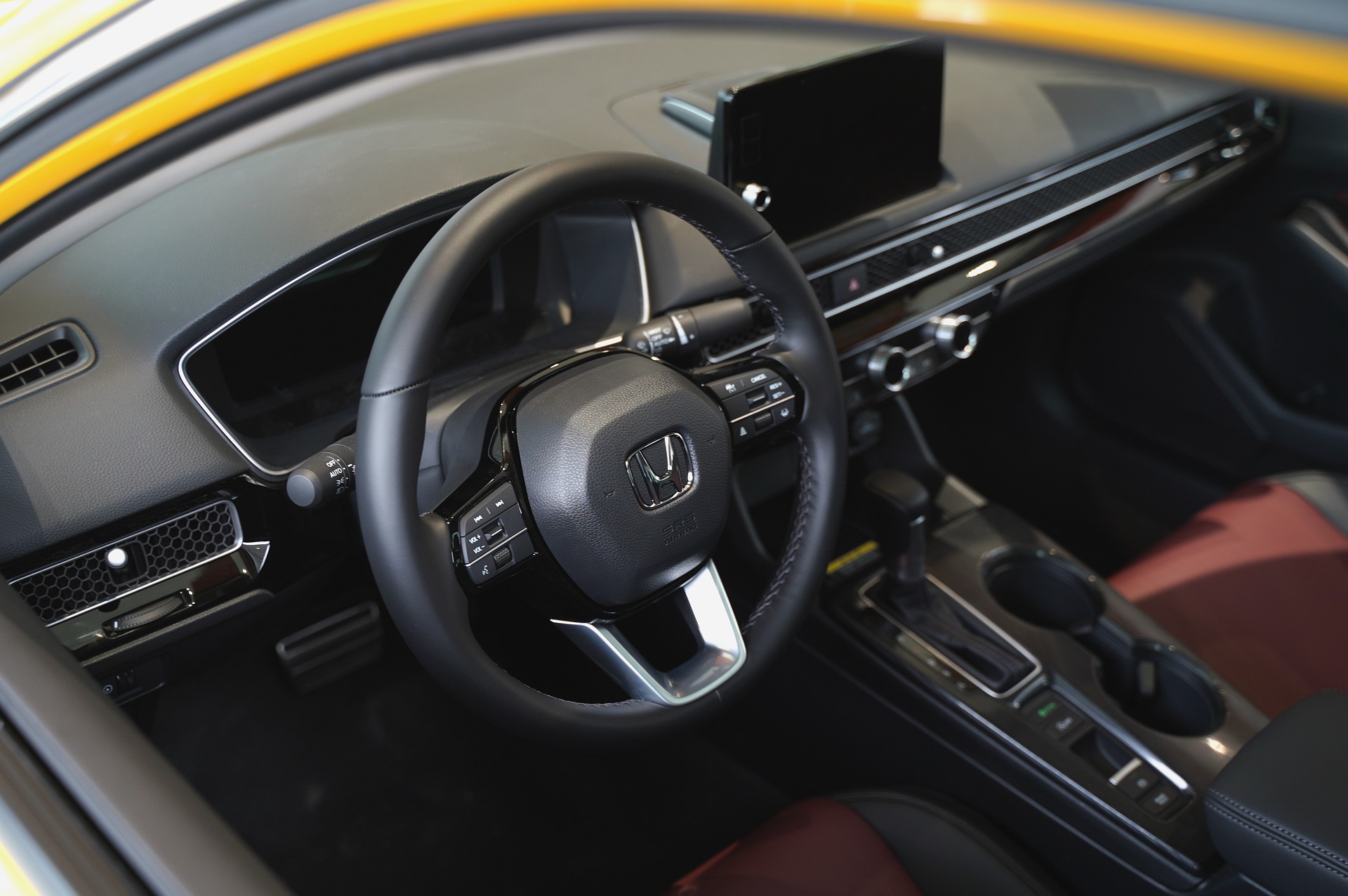As an Amazon Associate, I earn from qualifying purchases
If you own a Honda Civic, you probably wonder, “How long will my car’s transmission last?” The transmission is one of the most important parts of your vehicle.
It controls how smoothly your car shifts gears and drives on the road. Knowing the lifespan of your Honda Civic’s transmission helps you plan for maintenance and avoid unexpected repairs. You’ll discover clear answers and practical tips to keep your transmission running strong for years.
Keep reading to protect your investment and enjoy a smooth ride every time you get behind the wheel.
Honda Civic Transmission Types
The Honda Civic offers different transmission types to suit various driving needs. Each transmission type affects the car’s performance and longevity. Understanding these options helps you know what to expect from your car’s transmission life.
Honda Civic transmissions come in three main types: manual, automatic, and CVT. Each has unique features that influence driving style and maintenance needs.
Manual Transmission Features
The manual transmission gives drivers full control over gear changes. It uses a clutch and gear stick to shift gears manually. This type often lasts longer because it has fewer complex parts. It also tends to be cheaper to repair. Drivers enjoy a more engaging experience with manual transmissions.
Automatic Transmission Features
Automatic transmissions shift gears on their own. They use a torque converter and hydraulic system for smooth changes. This type is easy to use, especially in heavy traffic. Maintenance can be more expensive than manual types. Automatic transmissions provide a comfortable and relaxed drive.
Cvt Transmission Features
CVT stands for continuously variable transmission. It uses belts and pulleys to provide seamless gear changes. This design improves fuel efficiency and smoothness. CVTs can be more sensitive and need proper care. They offer a quiet ride and steady acceleration.
Average Transmission Lifespan
The average transmission lifespan of a Honda Civic is a key concern for many owners. Knowing how long the transmission typically lasts helps with maintenance and planning. A well-maintained transmission can provide reliable service for many years. This section explains what you can expect in terms of mileage and what affects transmission longevity.
Typical Mileage Expectations
Most Honda Civic transmissions last between 150,000 and 200,000 miles. Some can go beyond 200,000 miles with proper care. The exact mileage depends on driving habits and maintenance. Regular transmission fluid changes help extend the life. Many owners see smooth performance well past 150,000 miles.
Factors Affecting Longevity
Driving style plays a big role in transmission wear. Hard acceleration and sudden stops strain the system. Frequent towing or heavy loads also reduce lifespan. Maintenance is crucial. Skipping fluid changes or ignoring leaks causes early failure. Climate matters too. Hot weather can degrade transmission fluid faster. Keeping the transmission cool helps protect it.
Signs Of Transmission Wear
Signs of transmission wear often appear before major damage occurs. Noticing these early can save you costly repairs. The transmission is key for smooth driving. When it starts to fail, your Honda Civic shows clear signals. Pay attention to these signs to keep your car in good shape.
Unusual Noises
Strange sounds from your transmission are a warning. Grinding, whining, or clunking noises mean parts are wearing out. These noises may happen during acceleration or gear shifts. Ignoring them can lead to bigger problems and expensive fixes.
Shifting Problems
Hard or delayed shifting is a common sign of wear. Your car might slip out of gear or hesitate to change gears. Jerky movements or rough shifts show the transmission struggles to work properly. These issues reduce driving comfort and safety.
Fluid Leaks
Transmission fluid leaks are a serious concern. This fluid keeps parts cool and lubricated. Red or brown puddles under your car indicate leaks. Low fluid levels cause overheating and damage. Check for leaks regularly to avoid costly repairs.

Credit: bobsdriveline.com
Maintenance Tips For Longevity
Keeping your Honda Civic transmission in good shape takes simple care steps. These tips help the transmission last longer and work better. Small efforts protect your car’s most important parts.
Regular Fluid Changes
Transmission fluid keeps the parts moving smoothly. Old fluid can cause wear and damage. Change the fluid as the owner’s manual says. Clean fluid helps the transmission cool down and work well. Check the fluid level often to avoid problems.
Driving Habits To Avoid
Avoid hard stops and quick starts. These actions stress the transmission and cause wear. Do not shift gears while moving fast. Let the car stop before changing gears. Avoid riding the brake on hills. Gentle driving helps the transmission last longer.
Routine Inspections
Check the transmission regularly for leaks or strange noises. Early fixes stop small problems from growing. Have a mechanic inspect the transmission during car service. Routine checks catch issues before they cause damage. Stay on top of inspections to keep the transmission healthy.
Common Transmission Issues
Transmission problems can shorten the life of a Honda Civic. Drivers often face issues that affect smooth driving and cause costly repairs. Knowing common transmission issues helps catch problems early. This saves money and keeps the car reliable. Different types of transmissions have unique challenges. Below are the main problems for each type.
Cvt Specific Problems
Honda Civics with CVT can have belt wear inside the transmission. This causes slipping and poor acceleration. Overheating happens if the transmission fluid is low or dirty. This leads to damage and failure. Some CVT models face software glitches affecting shifting. Strange noises like whining often warn about CVT problems.
Manual Transmission Challenges
Manual transmissions in Honda Civics can have clutch wear from heavy use. This causes slipping and harder gear changes. Synchronizers can wear out, making shifting rough or noisy. Leaking transmission fluid lowers lubrication and causes damage. Drivers may feel grinding or resistance when changing gears.
Automatic Transmission Failures
Automatic transmissions may have worn bands and clutches. This leads to slipping and delayed shifting. Fluid leaks or low fluid level cause overheating. Valve body problems can create harsh or erratic shifts. Strange noises or shaking while driving signal transmission trouble.

Credit: www.hondaofoxnard.com
Repair Vs Replacement Costs
Deciding between repairing or replacing a Honda Civic transmission depends on many factors. Both options affect your wallet differently. Understanding costs helps you choose the best solution for your situation.
Typical Repair Expenses
Fixing a transmission can cost between $300 and $1,500. Minor repairs like fixing seals or replacing fluid are on the lower side. Major repairs, such as fixing gears or clutches, push costs higher. Labor charges add to the final bill. Prices vary by location and mechanic expertise.
When To Replace The Transmission
Replacing a transmission usually costs $1,800 to $3,500. It is a better choice when repairs are too frequent or expensive. A replacement makes sense if the transmission is severely damaged. Also, if your Civic is older and repair parts are rare, replacement is wise. A new or rebuilt transmission can last many more years.
Cost-saving Strategies
Look for a trusted mechanic who offers fair prices. Consider rebuilt or used transmissions to cut costs. Regular maintenance helps avoid big repair bills. Check warranties on parts and labor. Shop around to compare quotes before deciding. These steps save money and extend your transmission’s life.
Extending Transmission Life
Extending the life of your Honda Civic’s transmission saves money and prevents breakdowns. Taking simple steps helps your transmission last longer and work better. Regular care keeps your car running smoothly for many miles.
Upgrading Transmission Components
Replacing worn parts with stronger components improves transmission durability. High-quality clutches and gears reduce wear and tear. Upgrades can help the transmission handle more stress and last longer.
Aftermarket Solutions
Aftermarket parts offer affordable options to improve transmission health. Look for trusted brands that match your Civic’s model. These parts often provide better performance and can extend transmission life.
Professional Servicing Importance
Regular check-ups by skilled mechanics catch problems early. Professionals use the right tools to inspect and fix transmission issues. Timely service prevents costly repairs and keeps your transmission in good shape.

Credit: www.reddit.com
Frequently Asked Questions
How Long Does A Honda Civic Transmission Typically Last?
A Honda Civic transmission usually lasts between 150,000 to 200,000 miles with proper care.
What Factors Affect Honda Civic Transmission Lifespan?
Driving habits, regular maintenance, and fluid changes impact how long the transmission lasts.
How Often Should Transmission Fluid Be Changed In A Honda Civic?
Transmission fluid should be changed every 30,000 to 60,000 miles to keep it healthy.
Can Transmission Problems Shorten A Honda Civic’s Lifespan?
Yes, ignoring transmission issues can cause early failure and costly repairs.
How To Know If Honda Civic Transmission Needs Repair?
Signs include slipping gears, strange noises, delayed shifting, or warning lights on the dashboard.
Is It Cheaper To Repair Or Replace A Honda Civic Transmission?
Repair is usually cheaper unless damage is severe; replacement costs more but lasts longer.
Conclusion
A Honda Civic transmission can last many years with care. Regular maintenance helps avoid costly repairs later. Watch for signs of trouble early to fix issues fast. Driving smoothly also extends the transmission’s life. Remember, clean fluid and timely service keep it healthy.
A well-kept transmission means better car performance and safety. Take simple steps now, and your Civic will run longer. Keeping these tips in mind makes a big difference. Your car deserves good care for a smooth ride ahead.
As an Amazon Associate, I earn from qualifying purchases


